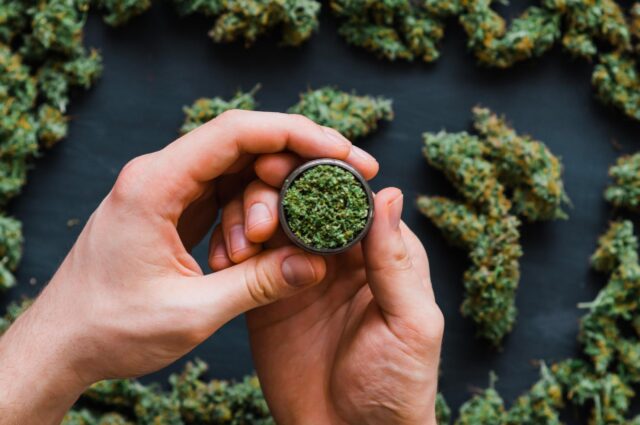
Medical marijuana, also known as medical cannabis, is derived from the Cannabis sativa plant and used to alleviate symptoms of medical conditions.
In Florida, medical marijuana is legal for patients who meet the criteria for a qualifying condition and have a recommendation from a licensed physician.
However, recreational use of marijuana remains illegal in Florida and can result in criminal consequences.
To use medical marijuana safely and responsibly, you must know how to choose the right strain and dosage and cope with any side effects or interactions.
You must also keep your medical marijuana card valid by renewing it regularly. You can do this easily by visiting the Florida Medical Marijuana Card Renewal platform.
In this blog, we will share some useful tips and advice on how to make the most of your medical marijuana treatment and improve your quality of life.
Choosing the Right Medical Marijuana Strain and Dosage

One of the most important decisions when using medical marijuana is selecting the appropriate strain and dosage. This choice can greatly impact the effectiveness of treatment and minimize potential risks. Here’s how to go about it:
Consult a Medical Professional
Before embarking on medical marijuana treatment, consult a qualified healthcare provider.
They can assess your medical condition and help you decide if medical marijuana is a suitable option. Their guidance ensures that your treatment aligns with your health goals and existing treatments.
Understand Strain Varieties
Medical marijuana strains encompass a spectrum of chemical components with varying concentrations of cannabinoids, such as THC (delta-9 tetrahydrocannabinol) and CBD (cannabidiol).
While THC delivers psychoactive effects, CBD offers non-psychoactive benefits like anti-inflammatory, anti-seizure, and anti-anxiety properties.
The THC-to-CBD ratio influences strain effects: higher THC levels often yield euphoria, stimulation, and increased appetite, while elevated CBD levels promote relaxation, calmness, and anti-inflammatory responses.
Start with Low Dosage

If your healthcare provider recommends medical marijuana, start with a low dosage. This approach allows your body to acclimate to the effects and reduces the risk of adverse reactions.
Gradually increase the dosage under medical supervision to find the optimal level for symptom relief.
Dealing with Medical Marijuana Side Effects and Interactions
As with any medical treatment, medical marijuana can have side effects and interactions with other medications. Being aware of these potential challenges and knowing how to manage them is essential for safe and responsible use:
Be Mindful of Common Side Effects
While medical marijuana’s side effects are generally mild, they can include dry mouth, red eyes, impaired memory, and increased heart rate.
These effects usually subside as the body adjusts to the treatment. If you experience severe or persistent symptoms, consult your healthcare provider.
Avoid Harmful Interactions
Medical marijuana can interact with certain medications, potentially affecting their efficacy or causing adverse effects.
Inform your healthcare provider about all the medications and supplements you’re taking. They can advise you on potential interactions and adjustments to your treatment plan.
Moderation is Key

Responsible use of medical marijuana involves moderation. Avoid excessive consumption to minimize the risk of adverse effects. Following recommended dosages and usage guidelines is important to ensure the best possible outcome for your health.
To reduce interactions, inform your physician about all medications and substances you use before starting medical marijuana.
Avoid combining it with alcohol or drugs that affect judgment, coordination, or reaction time. Monitor effects carefully and promptly report any changes or concerns to your physician.
Supporting a Loved One Using Medical Marijuana: How to Help
If a loved one uses medical marijuana for a health condition, you may wonder how to support them in their journey.
Medical marijuana can be a helpful and effective treatment for many patients who suffer from chronic pain, nausea, seizures, PTSD, and other conditions.
However, medical marijuana use may also come with challenges and stigma that may affect your loved one’s quality of life and well-being.
Here are some ways that you can support your loved one who uses medical marijuana for a health condition:
Learn About Medical Marijuana
Educate yourself about medical marijuana and its benefits and risks for your loved one’s condition and symptoms.
You can do this by reading reliable sources of information, such as scientific studies, reputable websites, books, or magazines. You can also talk to your loved one’s doctor or MMJ physician to learn more about their treatment plan and goals.
Respect Their Choice
Respect your loved one’s decision to use medical marijuana, and do not judge them for it.
Remember that they use medical marijuana to improve their quality of life and cope with their condition or symptoms. Do not assume they are using medical marijuana for recreational purposes or are addicted.
Show Compassion

Be supportive and compassionate towards your loved one and their experience with medical marijuana.
Listen to their feelings and concerns and offer them encouragement and comfort.
Acknowledge their progress and achievements and celebrate their milestones. Help them cope with any challenges or setbacks that they may face along the way.
Be Involved in Their Care
Be involved and helpful in your loved one’s treatment process. You can accompany them to medical appointments and dispensaries.
Help them stick to their dosage routine, monitor their response to medical marijuana and communicate any concerns to their healthcare provider.
You can also help them with their daily activities and responsibilities, such as household chores, errands, work, or school.
Be Prepared for Emergencies
Be aware and prepared for any emergencies from your loved one’s use of medical marijuana.
You should know the signs and symptoms of an overdose, such as extreme confusion, paranoia, hallucinations, chest pain, difficulty breathing, or loss of consciousness.
You should also know what to do in case of an overdose, such as calling 911, administering CPR, or using naloxone if available.
You should also have the contact information of your loved one’s doctor or MMJ physician handy.
Conclusion

Medical marijuana is a valuable option for many patients who suffer from various conditions or symptoms that affect their quality of life.
However, using medical marijuana also requires caution and responsibility to ensure its safety and effectiveness.
By following the tips discussed in this blog, you can stay safe and responsible with your medical marijuana use.









